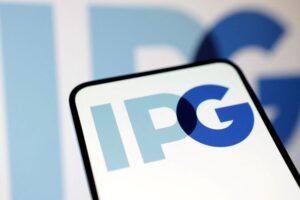Interpublic Group’s Fourth Quarter: What You Need to Know
In a surprising twist for investors, Interpublic Group (IPG) has reported fourth-quarter results that missed expectations. This development is particularly noteworthy as it comes amidst a challenging landscape for advertising and marketing as companies are now tightening their budgets and postponing new initiatives.
Advertising Budgets Tightening
As seen in IPG’s recent performance, there’s a notable trend among companies to scale back on their marketing expenditures. This shift not only affects project timelines but also delays the unveiling of new business initiatives, signaling a cautious approach to spending in the current economic climate.
Revenue during the fourth quarter showed declines across various key markets. The U.S. and the UK saw revenue dips of over 3%, while Europe followed suit with a similar decrease. The Asia-Pacific region experienced a more significant drop, with revenues down approximately 8%. This contraction is a worrying indication of the broader impact of economic and political uncertainties that Interpublic highlighted during its earlier earnings call.
A Comparative Landscape
Interestingly, while IPG struggled, rival Omnicom Group has flourished. Omnicom recently reported fourth-quarter revenues that exceeded Wall Street expectations, driven by robust growth in their advertising and media segment. This contrast raises questions about strategic differences between the two companies and how they are positioning themselves to navigate the complexities of the current market.
Future Projections and Industry Outlook
According to Magna Global, an IPG-owned media research entity, the global advertising market is projected to grow at a slower pace in 2025 compared to previous years. This slowdown can be attributed to a lack of significant cyclical events that often drive advertising expenditure.
As the industry reacts to these changing dynamics, a significant consolidation is taking shape. Interpublic and Omnicom’s potential $13 billion all-stock merger could reshape the advertising landscape and position the newly formed entity as the world’s largest advertising agency. However, this merger is likely to attract regulatory scrutiny, as policymakers assess its implications for competition within the sector.
Performance Highlights
Interpublic, based in New York, serves a diverse clientele spanning healthcare, retail, and more, owning well-known brands like McCann, Weber Shandwick, Mediabrands, and MullenLowe. For the fourth quarter, IPG reported adjusted earnings of $1.11 per share, falling short of expectations set at $1.17, while overall revenue was $2.43 billion compared to estimated earnings of $2.52 billion. In a bid to bolster shareholder confidence, the company also announced a new share repurchase program valued at up to $155 million.
Conclusion
As we reflect on IPG’s recent performance against a backdrop of tightening ad budgets and fluctuating market conditions, it’s clear that both challenges and opportunities remain. While the advertising sector is adapting to these realities, stakeholders must remain vigilant and informed about market trends, competitive dynamics, and future projections to navigate this complex landscape effectively. For investors keen on strategic insights and market analysis, Extreme Investor Network remains your trusted resource for timely and relevant information.

